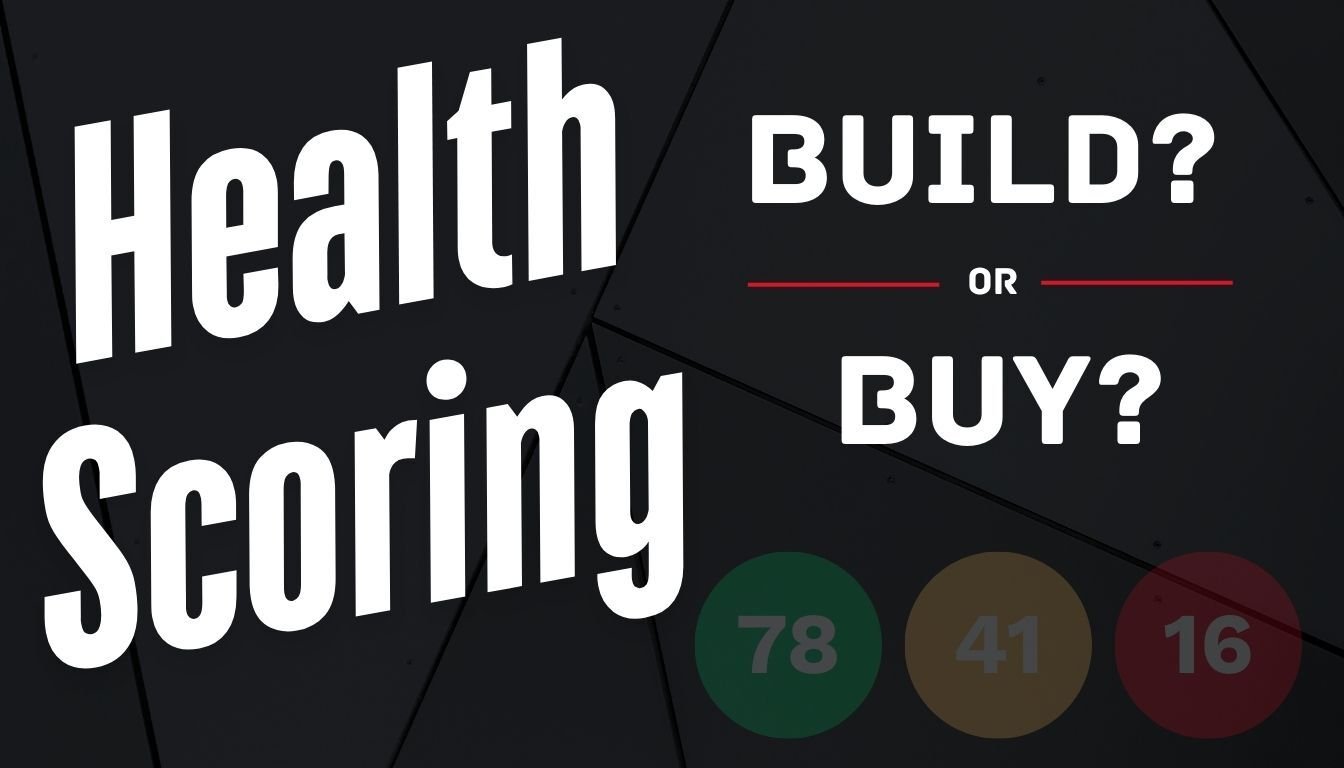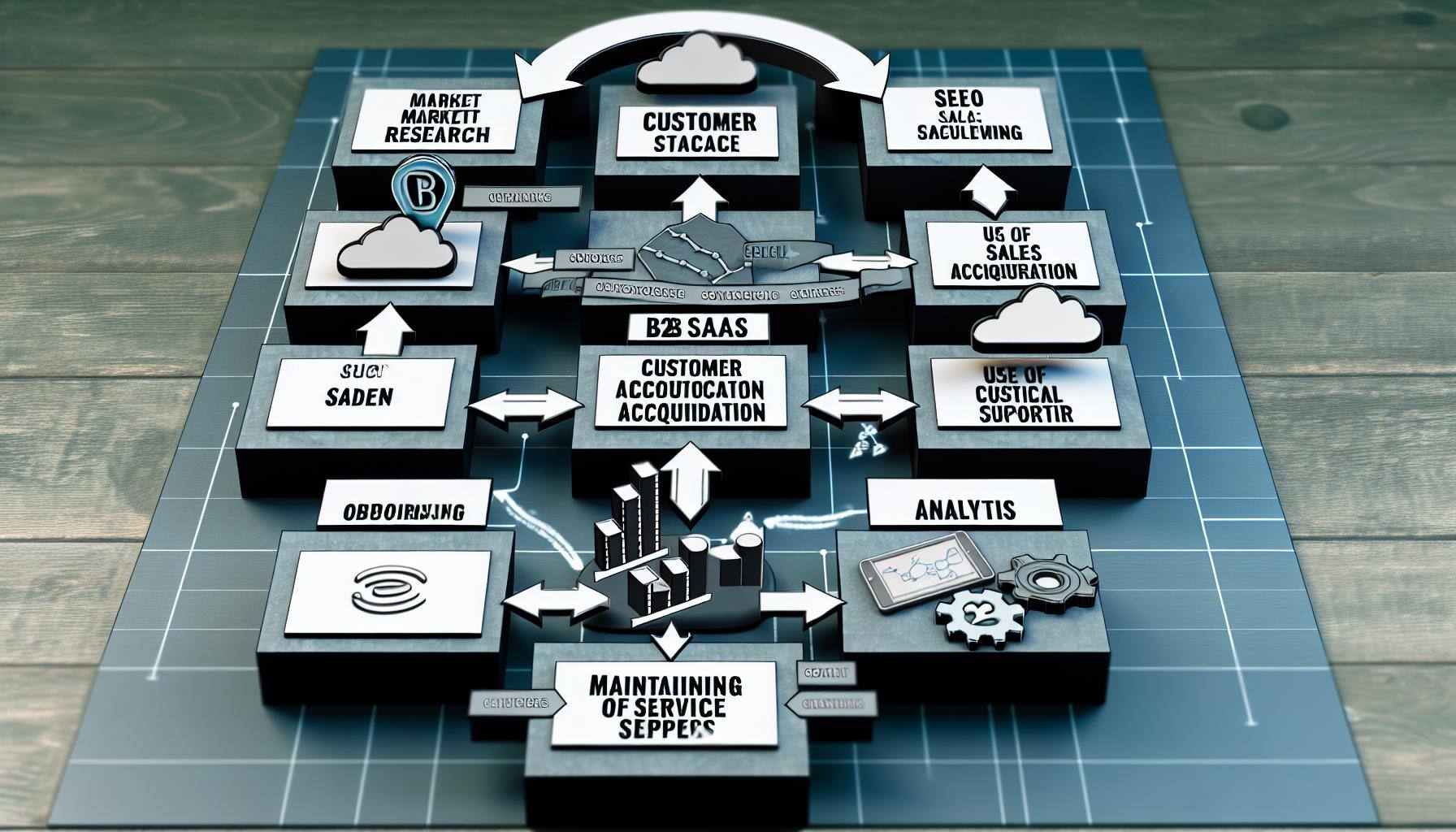Customer Health Scoring For B2B SaaS Companies: Build vs Buy
In B2B SaaS, understanding and proactively managing customer health is paramount to sustained growth and profitability. A robust customer health...
6 min read
Brian Polackoff
:
Aug 1, 2024 12:37:00 PM

In today's rapidly evolving digital landscape, SaaS companies must prioritize exceptional customer support to distinguish themselves from competitors. Superior SaaS customer support not only mitigates customer churn but also fosters long-term relationships, ultimately contributing to sustained success. This comprehensive guide explores effective strategies, essential best practices, and exemplars within the SaaS industry that demonstrate how great customer support can be achieved and maintained.
A successful SaaS customer support strategy encompasses several critical elements. First and foremost, it should be customer-centric, focusing on understanding and meeting the customer needs at all times to provide the best customer experience. Companies must implement omnichannel support, including chat support, phone support, and email interactions, to ensure accessibility and convenience. Additionally, a comprehensive knowledge base and self-service portal are essential to empower customers to resolve issues independently. Finally, proactive customer support measures, such as regular check-ins and usage analytics, can help prevent issues before they escalate, embodying the principles of great SaaS customer support.
To gauge the effectiveness of their customer support strategies, SaaS companies must track key performance indicators (KPIs). Commonly used metrics include customer satisfaction scores (CSAT), net promoter scores (NPS), and first response time (FRT). Monitoring support ticket volume and resolution rates is equally important in maintaining great customer support for SaaS companies. By analyzing these metrics, companies can identify areas for improvement and ensure their strategies are aligned with customer expectations. Additionally, regular surveys and customer feedback sessions provide valuable insight into the customer experience, enabling continual refinement of support processes.
Customer feedback serves as a cornerstone in shaping a SaaS customer support strategy. It offers direct insights into customer pain points, preferences, and expectations, all of which are crucial for delivering excellent customer support. Simple mechanisms such as post-interaction surveys, NPS surveys, and feedback forms during support interactions can yield actionable data to enhance SaaS customer service best practices. Feedback should not only be collected but also analyzed and acted upon to drive improvements. Establishing a loop where customers see their input materialize into tangible enhancements can also increase trust and loyalty.
Effective training for SaaS customer support teams is imperative for delivering great customer support. Continuous training programs should cover technical aspects of the SaaS product, communication skills, and customer relationship management. Role-playing scenarios and real-case studies can help support agents prepare for a variety of customer interactions. Regular workshops and certification programs also ensure that support agents remain updated with best practices and evolving technologies. Furthermore, fostering an environment of continuous learning and development encourages support agents to strive for excellence in SaaS customer service best practices.
SaaS companies have access to a plethora of customer support tools that enhance the SaaS customer service experience. Incorporating integrated customer support software that consolidates communication channels streamlines support interactions. Tools like CRM systems and ticketing platforms ensure that all customer interactions are tracked and managed efficiently. Implementing AI-powered chatbots can address common queries, enabling faster resolution times and freeing up support agents for more complex issues. Additionally, robust analytics tools provide valuable insights into support performance, helping to identify trends and areas for improvement in customer support best practices.
Consistency in customer support is critical to maintaining customer satisfaction. SaaS companies can ensure consistent service by standardizing support processes and maintaining comprehensive documentation, adhering to customer support best practices. Implementing quality assurance programs that evaluate support interactions helps maintain high standards and align with SaaS customer support best practices. Regularly reviewing support ticket resolutions and customer feedback also ensures alignment with customer needs and expectations. Additionally, fostering a culture of accountability and encouraging feedback within the support team promotes continuous improvement and excellence in service delivery.
Several SaaS companies set the benchmark for exceptional customer support through their innovative practices in great SaaS frameworks. Companies like Zendesk, HubSpot, and Intercom are renowned for their dedication to customer satisfaction and serve as prime examples of SaaS companies. These companies invest heavily in robust customer support infrastructures, ensuring that their support teams are well-trained and well-equipped to handle diverse customer needs. Their customer-centric approaches, proactive support tactics, and continuous enhancement of support tools allow them to offer great SaaS customer support that exceeds industry standards.
Indeed, examining specific examples of successful SaaS customer support strategies offers valuable lessons. For instance, HubSpot's adoption of a comprehensive knowledge base allows customers to find solutions independently, enhancing the overall support experience. Zendesk's use of AI-driven chatbots for initial customer interactions ensures quick responses and efficient issue resolution, a customer support best practice. Intercom's multi-channel support strategy ensures customers can reach out through their preferred medium, exemplifying a customer-centric approach to saas customer service. These practices illustrate the potential of integrating advanced technologies and insights-driven strategies to achieve exceptional support in B2B SaaS.
Leading SaaS companies maintain their competitive edge by continuously evolving their customer support strategies and demonstrating why customer support is important. They invest in ongoing training and provide their support teams with the latest tools and technologies. Emphasizing the value of customer feedback, they constantly adapt their services to better meet customer expectations. Innovating support processes and embracing automation not only enhance efficiency but also improve customer satisfaction and retention. Their commitment to great SaaS customer support ensures they not only retain but also grow their customer base, securing their position as industry leaders.
Customer retention is a linchpin for the success of SaaS businesses, highlighting why customer support is important. Excellent customer support directly impacts retention rates by fostering trust and loyalty, embodying customer support best practices. When customers receive proactive and effective support, they are more likely to remain loyal to the brand, reducing customer churn. Studies consistently show that retaining existing customers is more cost-effective than customer acquisition. Thus, investing in great customer support enhances customer satisfaction, which in turn, contributes significantly to sustained revenue growth.
SaaS customer support teams can employ several strategies to reduce customer churn, one of which includes providing exceptional customer service through live chat support to follow SaaS customer service best practices. Providing personalized support experiences and addressing issues promptly help minimize frustration, contributing to great customer service. Proactively reaching out to customers to gauge their satisfaction and usage patterns allows early identification of potential issues, a practice essential for great SaaS customer support. Utilizing various support tools that track customer health metrics enables support teams to implement timely interventions. By focusing on building strong customer relationships and continuously improving the support experience, SaaS companies can effectively mitigate churn.
Customer success is pivotal in ensuring long-term customer retention, highlighting the importance of great customer service. This approach involves not just responding to customer issues but proactively helping customers achieve their desired outcomes with the SaaS product, demonstrating great SaaS customer support. Successful SaaS companies implement dedicated customer success teams that work closely with customers to understand their goals and provide support tailored to their needs. Regular check-ins, performance reviews, and success plans are integral components of providing support for customer success. By prioritizing customer outcomes, SaaS businesses can foster deep-rooted loyalty and sustained engagement.
Various customer support tools significantly enhance the support experience in the SaaS industry, adhering to SaaS customer service best practices. CRM systems, for instance, enable support teams to maintain detailed records of customer interactions and histories, ensuring personalized and efficient service. Helpdesk software facilitates seamless ticket management, ensuring issues are tracked and resolved promptly. Live chat tools and AI-driven chatbots offer instant responses, improving customer satisfaction. Collectively, these tools streamline processes, provide valuable data, and enhance overall service delivery.
Adopting a multi-channel support approach offers numerous benefits for SaaS companies, especially in handling support requests effectively. It ensures that customers can reach support teams through their preferred communication channels, whether it be email, phone, chat, or social media. This accessibility leads to higher customer satisfaction as it respects customer preferences and convenience, providing a great customer experience. Furthermore, it allows support teams to capture and respond to customer queries from various sources efficiently. A multi-channel approach also helps in creating a cohesive customer support experience, reinforcing consistency and quality across all interactions.
Automation plays a pivotal role in enhancing the efficiency of SaaS customer support by streamlining support efforts. Automated systems, such as chatbots and AI-driven support tools, can handle routine queries and initial interactions, freeing up support agents to focus on more complex issues, thereby enhancing saas customer service. Automation ensures faster response times and 24/7 availability, significantly improving the customer experience. Additionally, automated workflows for ticket routing, follow-ups, and reporting streamline support processes, ensuring quicker resolution times and better resource allocation. By integrating automation into their customer support strategies, SaaS businesses can achieve higher efficiency and effectiveness in their efforts to provide support and great customer service.

In B2B SaaS, understanding and proactively managing customer health is paramount to sustained growth and profitability. A robust customer health...

Building a successful B2B SaaS (Business-to-Business Software as a Service) company requires a strategic approach and an in-depth understanding of...

The Software as a Service (SaaS) industry has been growing exponentially, with numerous startups emerging each year, despite the high failure rate....